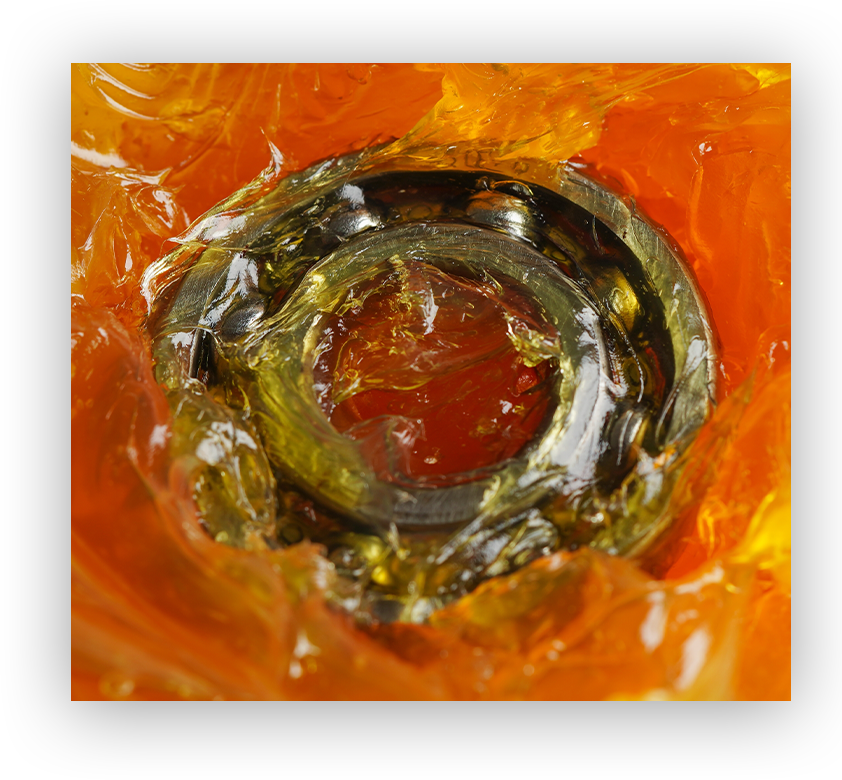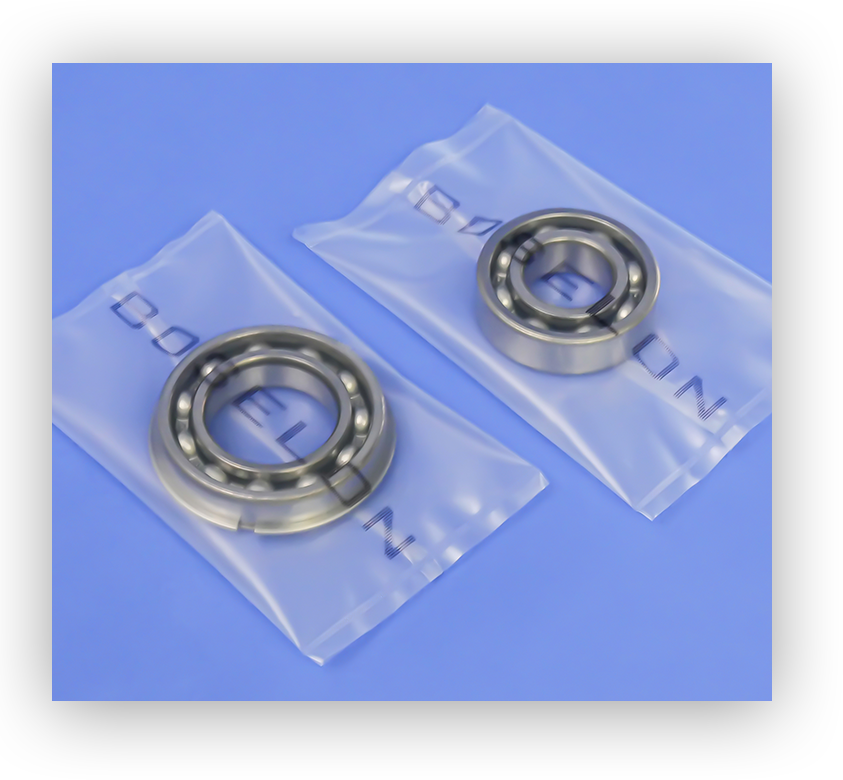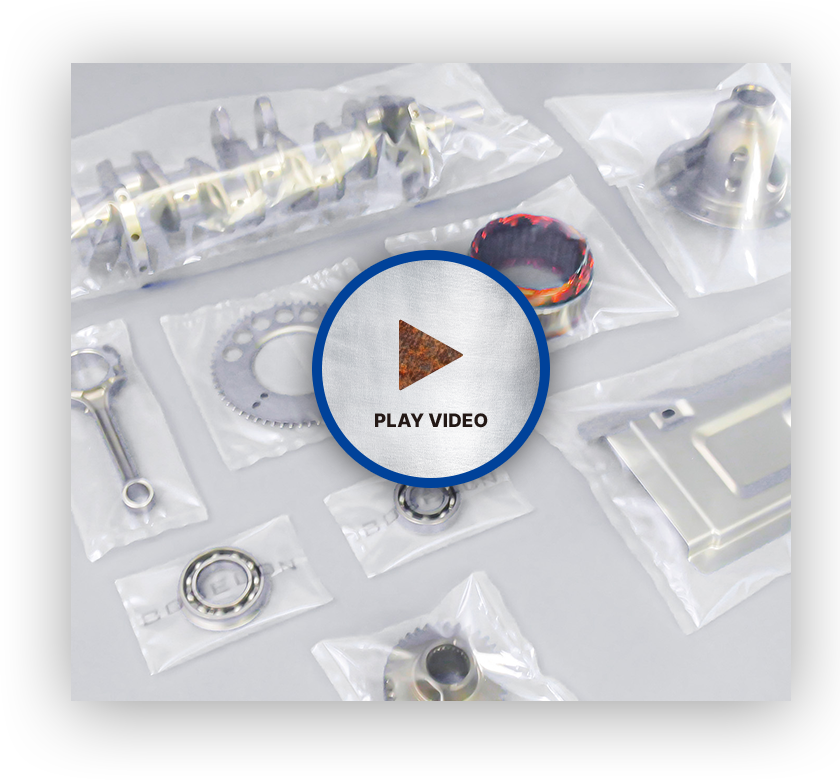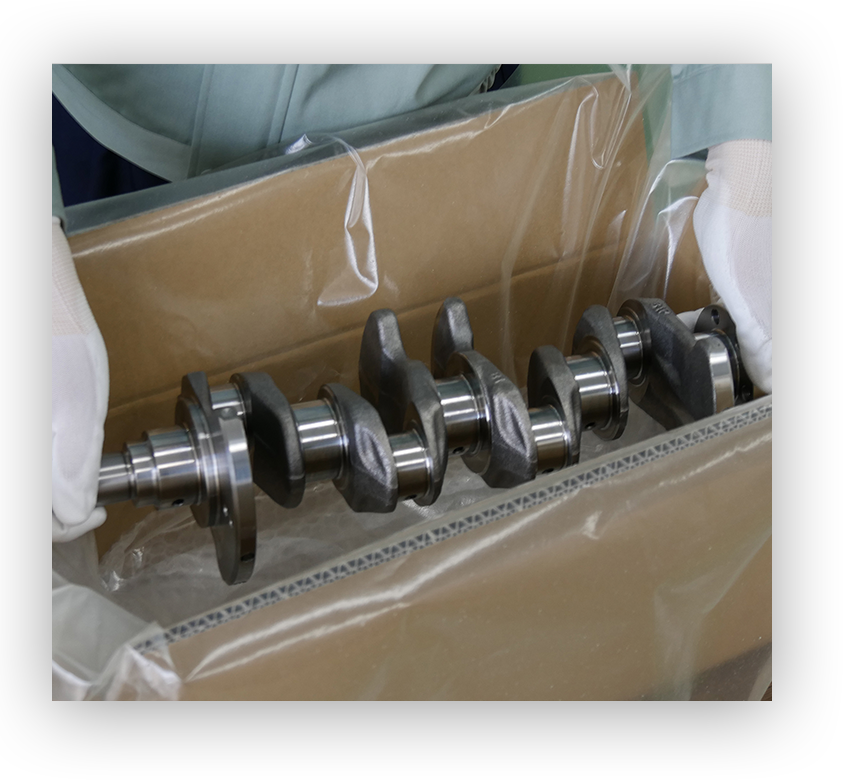VCI Film History
A History of VCI and the Birth of VCI Film
Corrosion has been called the silent and pervasive menace. It has caused catastrophic structural failures that have brought down bridges, destroyed roadways, sunk ships, and collapsed buildings.
Results of global industry analysis place rust and corrosion costs at over $400 billion dollars in the U.S. alone. Global market segments as varied as aerospace, automotive, defense, foundry and casting, heavy machinery, international export, linear rail and metal stamping battle the destructive force of corrosion everyday.
We are fortunate to live in a world where Boselon® exists as the ideal rust prevention packaging method. However, this wasn’t always the case. Below is the history of VCI, which inspired the creation of Boselon® and its continuous improvement as an industry leader in corrosion prevention.
Pre-Boselon®
Prior to Aicello developing Boselon® as the world’s first ever volatile corrosion inhibiting (VCI) film, there were only messy and dangerous packaging methods from which to choose.
In the 1940’s, Shell Oil Company developed a chemical called Dichan (Dicyclohexylammonium Nitrite) which was used by the U.S. military. This type of VCI was an improvement from the use of oils and greases as it allowed parts to be unpacked and used immediately. However, over the next couple decades as health assessments became more advanced, the need for better solutions became apparent.
By the 1960’s, it was common practice for many automotive original equipment managers to use VCI paper for rust prevention. However, VCI paper wasn’t able to provide a sealed environment. To create this sealed environment, VCI paper needed to be used in conjunction with polyethylene bags. As a result, each metal part was first wrapped in VCI paper and then in a polyethylene bag to create a rust-free environment.

Less Packaging Yet More Effective VCI Protection
In the late 1960’s, Aicello began research and development work on its revolutionary new film and soon had sample products for testing. The first test was performed by wrapping various metal automotive parts in Aicello’s new packaging film and shipping it overseas in ocean containers. After several months of transportation, the parts were unwrapped and all proved to be rust free.
In 1969, Aicello officially introduced Boselon® to the market. Boselon® was the world’s first VCI film and its use immediately began to spread throughout the automotive industry as it was an obvious upgrade to the inefficient packaging of VCI paper while also avoiding the mess and fuss of oils and greases.
A Clearly Superior Difference
Boselon® also had the additional advantage of being a clear film. Whereas parts wrapped in opaque VCI paper needed to be unpackaged for inspection, parts wrapped in Boselon®‘s transparent film could now be visually inspected without opening the sealed environment and exposing the parts to the elements.
Since its introduction, Boselon®‘s use has continued to grow. It provides superior workability, a safe product with excellent rust prevention, and reduces the amount of packaging material used.
Leading with Innovation
This commitment to continuous innovation allows Boselon® to not only be the world’s first VCI film, but the world’s best VCI film. Through Aicello’s dedication to continuous improvement, Boselon® is constantly getting better and expanding the global VCI film market.
Boselon® is at Your Service with Expert Personal Support
Tell Us Your Rust Problem or Need
Your Boselon® representative can help with an existing rust issue or work with you on VCI film and rust prevention packaging for future projects.
BOSELON®’s Engineers the Solution
Boselon®’s corrosion protection specialists will work diligently to find the perfect rust prevention packaging products to meet your needs while providing custom designs that take into account your shipping and storage requirements.
100% Customer Satisfaction
Rust Worries Disappear
Boselon® is at Your Service with Expert Personal Support
When was BOSELON® created?
Aicello Corporation introduced Boselon® as the world’s first volatile corrosion inhibiting film in 1969. It has a proven track record of more than half a century of being the ideal rust prevention packaging method for metals. It can withstand severe shipping conditions and meet long-term storage needs.
Where is AICELLO Corporation located?
Aicello Corporation’s American headquarters is in Princeton, New Jersey. There is also an office located in central Ohio. In addition, Aicello has offices in Asia, Europe and other parts of North America.
Boselon®’s market share is growing in the United States. BOSELON® has more than an 80% market share in Japan and is used by most Japanese automotive original equipment manufacturers.
How does BOSELON® film prevent rust and corrosion?
The volatile corrosion inhibitors encapsulated in Boselon® continuously vaporize from the polyethylene film. It forms an active protective molecular membrane on the metal surface and effectively prevents the formation of rust.
What types of metal does BOSELON® best protect?
Boselon® VCI products are specifically designed to effectively work on cast iron, iron, galvanized steel, aluminum and copper. Speak with a BOSELON specialist to find the correct grade of BOSELON for your needs.
Are there industries best suited for BOSELON® film?
Yes, Boselon®’s corrosion inhibitor VCI is frequently used in the automotive, linear rail, heavy machinery, foundry and casting, metal stamping, and international export industries. Its own unique properties make it ideal for use on automated packaging lines and conveyor systems as well.
Are there multiple BOSELON® VCI products?
Yes, clients can choose from a variety of VCI film grades based upon the type of metal and its applications. Metals protected by Boselon® vapor corrosion protection include cast iron, iron, galvanized steel, aluminum and copper.
Does BOSELON® offer specialized VCI packaging options?
Yes, Boselon® offers optimal VCI packaging solutions to meet its clients’ diverse corrosion protection needs. Material forms include flat bags, gusseted bags, square bottom bags, individually cut sheets, VCI stretch film, and both perforated and non-perforated rolls. Please let your Boselon® rust prevention specialist know if you need other packaging needs as they are constantly developing new items.
How do BOSELON® clients immediately know if their orders arrived without rust and corrosion?
Boselon®’s clear film enables clients to visually inspect the contents of the metal products upon arrival. There is no need to open the sealed environment and expose the products to the elements. Clients can confidently use the product for immediate production or place them in long-term storage.
Is BOSELON® cost efficient for its clients?
Boselon®’s high quality volatile corrosion inhibitor film and packaging reduces its clients’ total costs. Its corrosion inhibiting protection and packaging are completed in a single process, which minimizes labor costs and maximizes productivity and product effectiveness. In addition, with Boselon®, there is no rust so there are no frustrating expenses for disrupted production schedules, replacement costs and third-party audits.
How do BOSELON®’s rust prevention specialists provide personal support?
We request that potential clients complete the Rust Prevention Diagnostic Form to learn about your specific needs. After the form is received and reviewed, a rust prevention specialist will contact you. The specialist will personally work with you to provide the best custom solutions to meet your anti-corrosion packaging needs.
Is BOSELON® film recyclable?
Yes, Boselon® VCI Film, VCI packaging and VCI bags are recyclable.
Does BOSELON® have a Technical Center?
Yes, the Boselon® Technical Center is a dedicated facility where Aicello continues the research and development practices that brought the world Boselon®. The center is continually improving Boselon® VCI films while adding additional grades for each industry and use.
In more detail, what is BOSELON®’s corrosion inhibiting system?
The volatile corrosion inhibitors encapsulated in Boselon® vaporize from the film continuously. These inhibitors condense and form an active protective molecular membrane of corrosion inhibitors on the metal surface.
If moisture condensation occurs inside of a package, vapor corrosion inhibitors are readily absorbed in the moisture, yielding a corrosion inhibiting effect.
When humid air from outside of the package permeates through the film, encapsulated corrosion inhibitors in the film are absorbed by the moisture. The moisture containing the corrosion inhibitors condenses on the metal surfaces and forms a VCI molecular membrane for continuous protection from rust.




